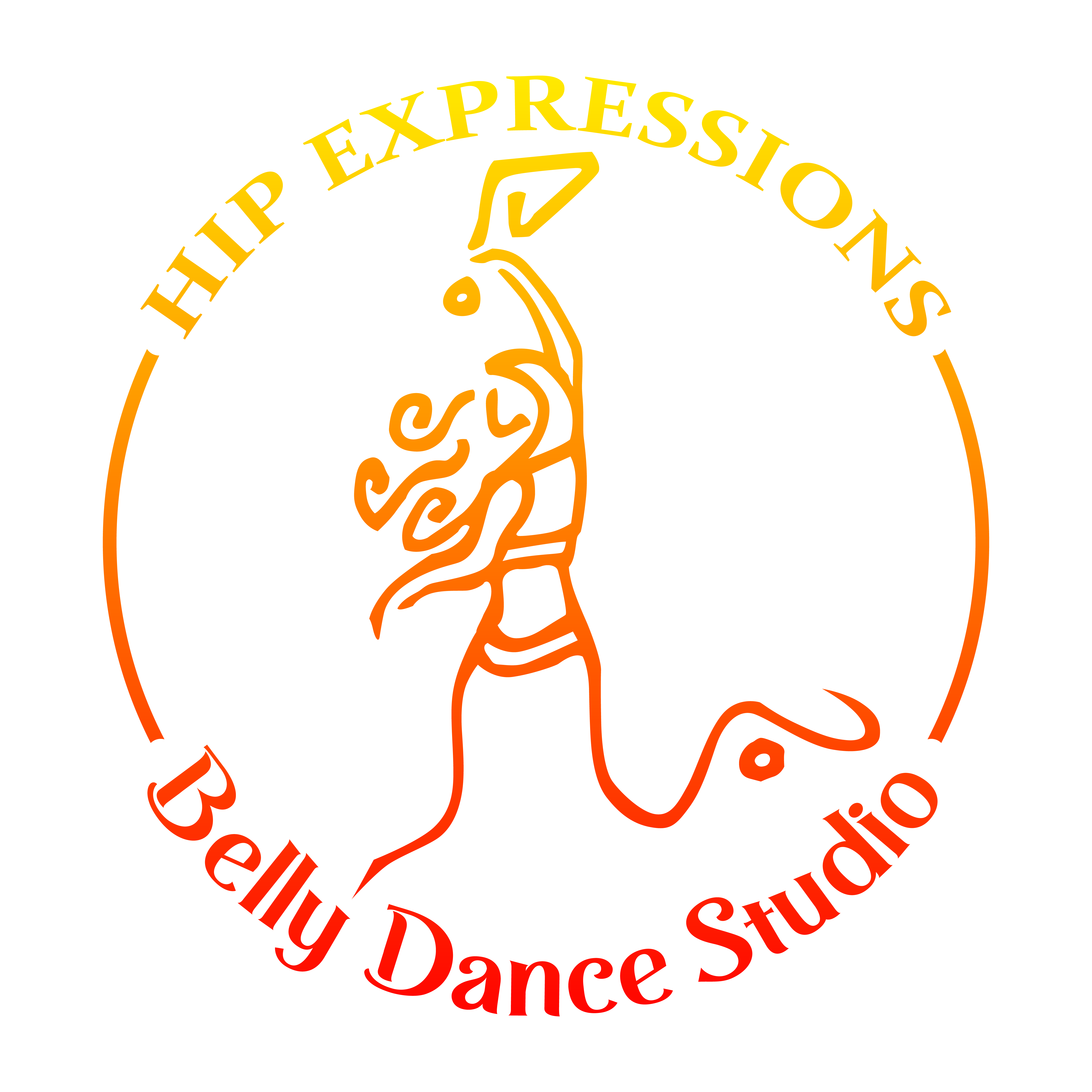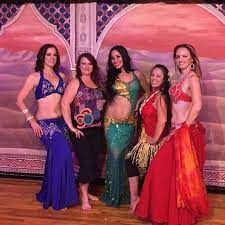The human inclination to party is timeless and universal. Early gatherings for purely social or celebratory reasons have been recorded around the world for thousands of years, usually for birthdays, harvests, and rites of passage. Music, rhythm, food and dancing have always been central to such gatherings and continue to be so today.
In the belly dance world, the word “hafla,” حفلة, is common to both Arabic and Hebrew and is used to generally describe an array of gatherings that primarily involve dancing and music. Its direct translation is “party” or “celebration.” There are various types, from formal showcases to a combination of formal professional dancing and live music to an impromptu get-together of friends who simply enjoy dancing with live or recorded music. In recent times, the word has also taken on a meaningful connotation: that which represents the celebration and unity in diversity of the Middle East and beyond, so that communities may grow together versus apart.
Johanna Zenobia, owner/director of Hip Expressions Dance Studio in St Petersburg, Florida, extends this diverse and community-building spirit to her haflas: “At Hip Ex, we like to distinguish between a hafla — a more casual party-like atmosphere where everyone is invited, like our First Fridays in downtown Gulfport— with a show or showcase, which is more formal and often curated, which we do not typically call a hafla. In our haflas, everyone is invited to perform or just dance for fun; just let us know you’re coming and what you’d like to do. We have a variety of dance forms, so even non-belly dancers can dance at a HipEx hafla: Polynesian, jazz, modern, Flamenco, etc. Our Tribal Burn and 1001 Nights Showcases, by comparison, are more formal and polished, in a staged performance setting. We sometimes pick themes and plan numbers that express the theme. For example, the spring Tribal Burn had a masquerade theme, and in the fall we’ll have Steampunk! While our 1001 Nights Show this year was in in a theater and is considered a showcase versus a hafla, we did invite folks up to dance during the intermission, so we do try to keep all our events fun and interactive.”
Belly Dancers all over the world have created their own interpretations of what a hafla is, and the reasons for having a hafla have evolved with the times. For example, it is very common these days for haflas – or showcases - to be used as fundraisers for those in need. Hip Expressions’ “Tribal Burn” is a great example; Johanna is a first generation Ukrainian-American, and proceeds from recent ticket sales directly benefitted Ukrainian refugees. In addition to fire dancing, Johanna’s father –a Ukrainian bandora player--performed an opening set.
Other reasons dancers may gather for a hafla is to practice their craft both in terms of technique and expression and offer a sense of community and non-judgmental support. What better way to integrate all of the aspects of dance class than in a hafla? Unlike other types of “classes,” the dance world is a community that derives great reward from growing together through getting together. This is particularly true in the belly dance world; hence, haflas are integral to anyone who has an interest or inclination to dance. Haflas are also wonderful ways to celebrate any holiday or occasion, from birthdays to retirement to community festivals.
Regardless of the reasons and types of haflas, or you role as a dancer or spectator, one thing is certain: you will “hafla” great time!
Sources:
When Did People Start Celebrating Birthdays? (historynet.com)
How to organise a Belly Dance Hafla event for charity or for fun. (worldbellydance.com)
What does حفلة (hafla) mean in Arabic? (wordhippo.com)
HAFLA - Celebrating the Middle East (islamicboard.com)
#bellydance #bellydancer #hafla #showcase #show #community #hipexpressions #nonjudgement #bodypositive #dancecommunity #ilovestpete #traditions #bellydancetampabay #tampabaybellydance #keepitlocal #yourvibeattractsyourtribe #dancestudiolife

